How To Secure A Dog With No Collar
Our thanks to Lost Dogs Minnesota doggie volunteer Lilly for this helpful tip! Please be safe and use gloves to avoid being bitten by a skittish dog when using this method.

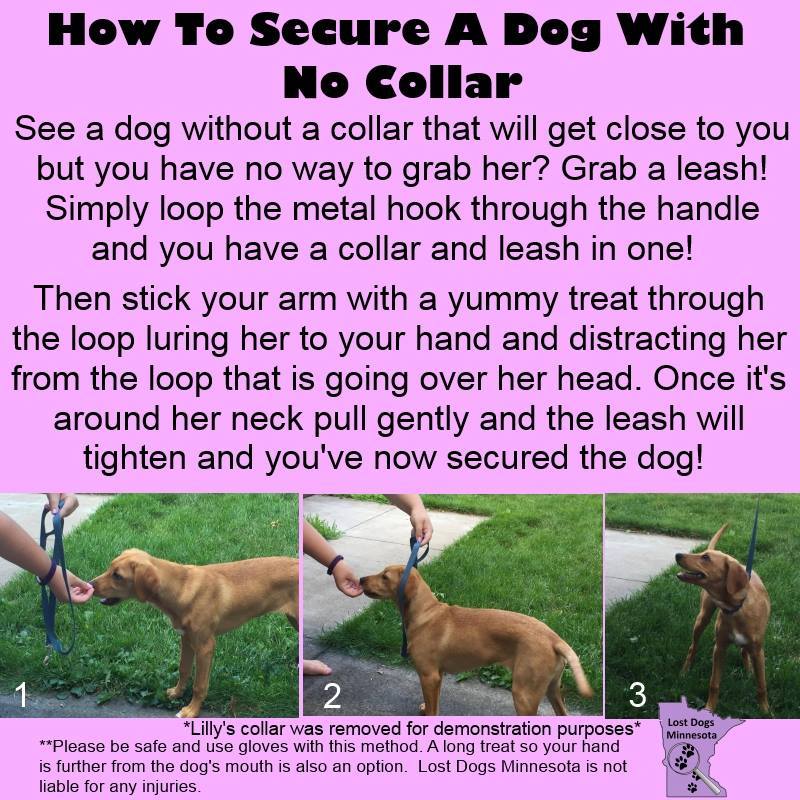
Our thanks to Lost Dogs Minnesota doggie volunteer Lilly for this helpful tip! Please be safe and use gloves to avoid being bitten by a skittish dog when using this method.

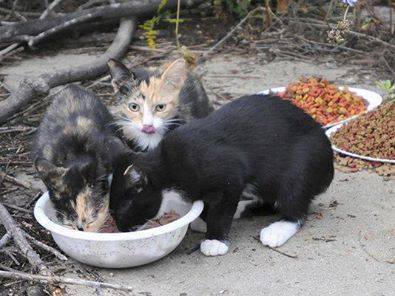

Our thanks to Lost Dogs of America for this tip!
Dogs that have been missing for a few days and are still not home will now be starting to look for reliable food sources (usually in the early morning, late afternoon or evening). Make sure you leave smelly food (like canned cat food), water, your dog's bed and an article of your dirty clothing or pillowcase on the porch. Then, look for available food sources where he/she may start to hang out including restaurant and convenience store dumpsters.
Here is a list of other good food sources for lost dogs. Leave flyers at homes and businesses near food sources.
–outdoor cat food (someone feeding barn or feral cats)
–spilled grain around feed bins at farms
–bird seed from bird feeders
–corn fields
–vegetable gardens and fruit trees
–restaurant dumpsters and cooking oil dumpsters
–convenience and grocery store dumpsters
–garbage cans and garbage day in your neighborhood
–trash cans at picnic areas, rest stops, parks and campgrounds
–fire pits at campgrounds
–nuts, berries, grass, horse poop (and other sources of animal waste)
–barbecue grills (they lick the drippings under the grill)
–mice and rabbits, eggs in waterfowl nests, chicken eggs and chickens
–road kill, hunting remains, fish guts and heads
–food processing plants or pet food processing plants
–feed mills
–June bugs, earthworms, grasshoppers
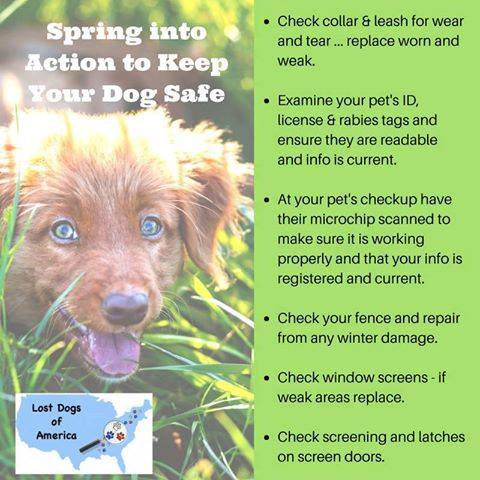
With our nice warm weather, be sure to get out in your yard and check your fence for weak areas that may need repair. Also be sure to check your pet's tags and make sure they are accurate and easy to read.
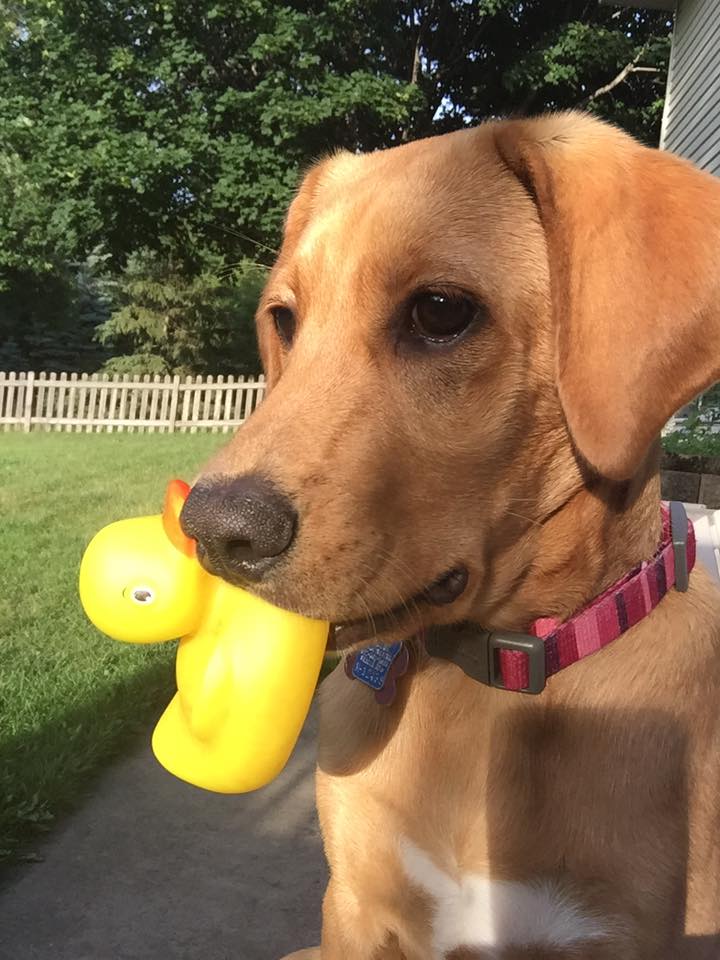
Check out this tip from Lost Dogs of America
In our experience, lost dogs do not want to live deep in the woods. They prefer to lurk on the edge of civilization, near food sources. In hot weather, they will need a reliable source of water. (In winter, they will eat snow). They need a quiet place to hunker down during the day with an easy path to travel at dusk and dawn, when they are likely to be moving about for food and water.
Concentrate your flyering on places like this:
*Houses that back onto wooded areas or parks
*Tall grass or marshy areas
*Cemeteries
*Golf courses
*Campgrounds and Picnic areas
*Sporting fields
*Industrial parks and abandoned factories
*Quiet cul de sacs
*Decks, old cars, old machinery, boats – especially with overgrown grass
*Junkyards
*Untidy yards and farm yards
*Abandoned barns and sheds
*Wooded areas behind restaurants, bars, grocery stores and convenience stores – anywhere food is sold or served
*Anywhere that outdoor cats are being fed
For more tips visit Www.lostdogsofamerica.org
Lost Dogs of America partners with Helping Lost Pets to help more lost dogs get home. Fill out a form and create your free flyer for your missing pet at www.helpinglostpets.com.

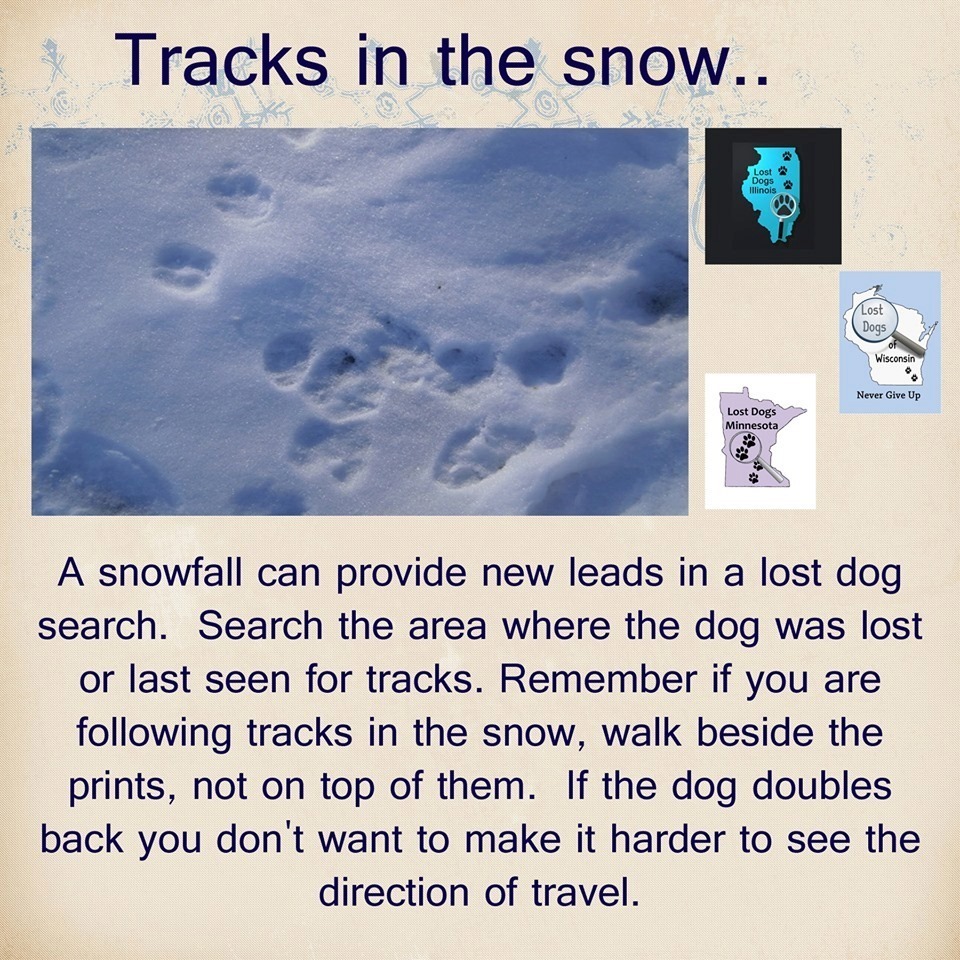
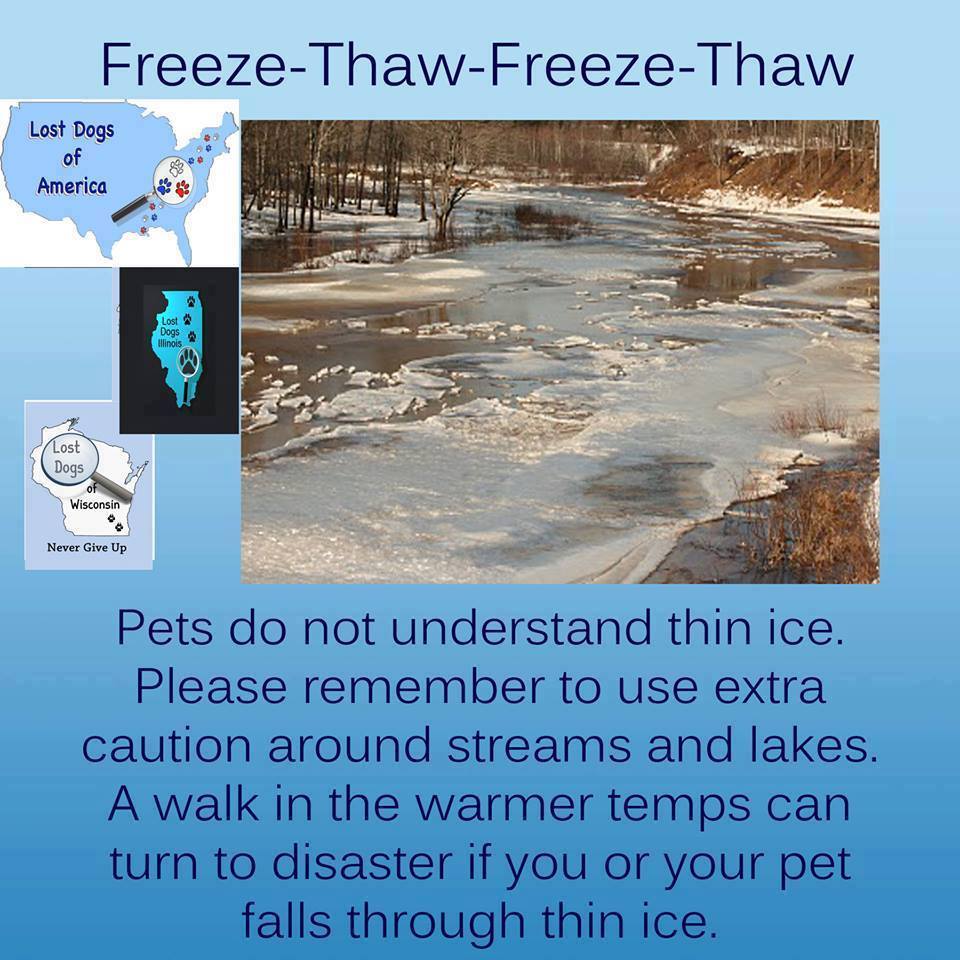
With the recent warm weather and rain, the ice may not be safe. Be sure to keep your pet on leash in order to keep him safe.
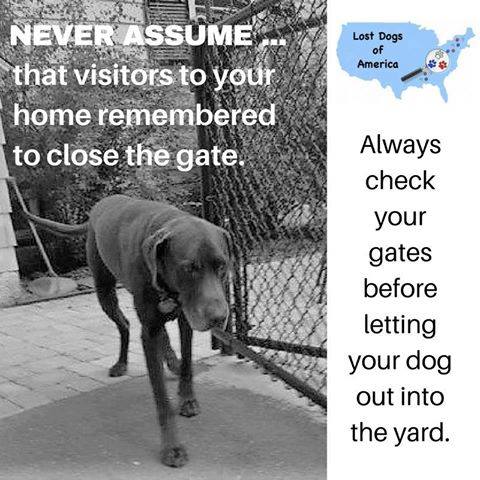
Dogs frequently go missing when a gate is left open by a contractor, meter reader, delivery person, family member or friend. Don't let it happen to you!


A great tip from Lost Dogs of America
SAFETY REMINDER! Never post photos of your children with your missing dog on public forums. Think about it. You have now posted your contact information, your location, your children's photos and your dog's name for all the world to see. This makes it VERY easy for someone with evil intentions to prey on your children. Be smart and safe! Spread the word about your missing dog, but leave your children out of it! Please spread our message and don't share lost dog posts with children in the photos. Thanks!
